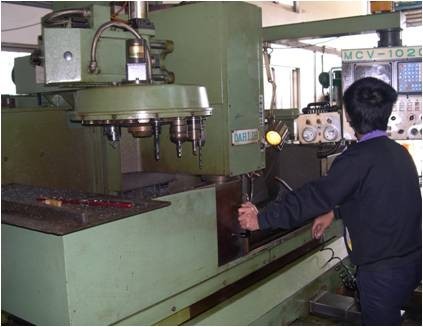Table of Contents
Introduction
In the dynamic and competitive landscape of the manufacturing industry, businesses constantly strive to improve efficiency, reduce costs, and enhance the quality of their products. One way to achieve these goals is through the utilization of custom tooling. Custom tooling refers to the design and production of specialized tools and equipment tailored to meet specific manufacturing requirements. This article explores the key benefits of custom tooling in the manufacturing industry, highlighting how it enhances productivity, streamlines operations, and boosts overall profitability.
1. Enhanced Efficiency
Custom tooling plays a pivotal role in enhancing efficiency within the manufacturing process. By designing tools specifically for a particular task or product, manufacturers can optimize operations, reduce production time, and minimize errors. Custom tooling enables precise control over various manufacturing stages, resulting in streamlined processes and improved workflow.
2. Improved Product Quality
Quality is a paramount concern for manufacturers, and custom tooling directly contributes to the production of high-quality products. With custom tools, manufacturers can ensure precise measurements, tolerances, and finishes, leading to consistent and reliable outcomes. Additionally, custom tooling minimizes the risk of defects and errors, resulting in products that meet or exceed customer expectations.
3. Cost Reduction:
Contrary to the common misconception that custom tooling is expensive, it can actually lead to significant cost savings in the long run. While the initial investment in it can be higher compared to off-the-shelf tools, the benefits outweigh the costs. Custom tooling eliminates the need for excessive manual labor, reduces material waste, and enhances efficiency, ultimately lowering overall production costs. Additionally, the improved product quality resulting from custom tooling reduces the likelihood of costly reworks or recalls.
4. Flexibility and Adaptability
The manufacturing industry often faces changing market demands and evolving customer preferences. Custom tooling offers manufacturers the advantage of flexibility and adaptability. As requirements change, custom tools can be easily modified or reconfigured to accommodate new specifications, thereby enabling rapid response to market trends. This flexibility ensures that manufacturers can maintain a competitive edge and meet customer expectations effectively.
5. Enhanced Safety
Safety is a crucial aspect of the manufacturing industry, and custom tooling can significantly contribute to a safer working environment. Custom tools are designed with ergonomics and safety in mind, reducing the risk of accidents and injuries. Manufacturers can incorporate safety features into the design of custom tools, such as guards, sensors, and automated mechanisms, to protect operators and prevent potential hazards.
6. Increased Productivity
Productivity is a key metric for any manufacturing operation, and custom tooling plays a vital role in boosting productivity levels. By eliminating the need for manual adjustments and repetitive tasks, custom tools accelerate the production process. The precise and consistent performance of custom tooling ensures maximum output and minimizes downtime, resulting in increased productivity and throughput.
Conclusion
Custom tooling offers a wide range of benefits to the manufacturing industry, ranging from enhanced efficiency and improved product quality to cost reduction and increased productivity. Manufacturers can leverage custom tooling to optimize their processes, respond to market demands, and maintain a competitive edge.

